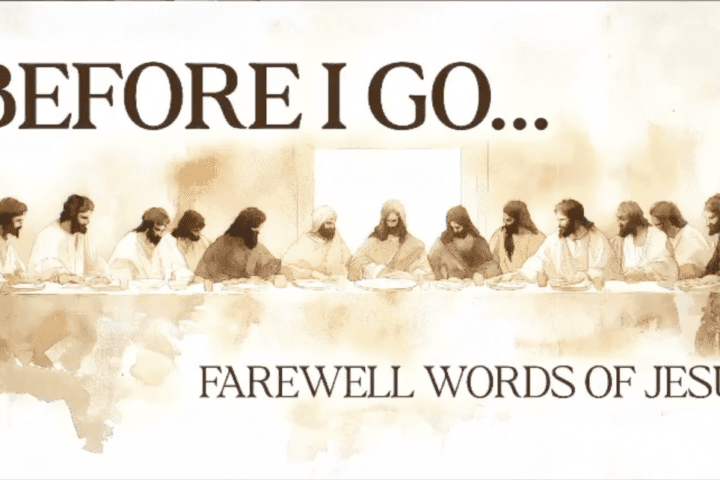Messages by Ryan Lenerz
Glory Through The Cross
Glory Through the Cross: Jesus’ prayer in John 17 invites us to find true glory in sacrifice and eternal life.
The World’s Hate
Jesus warns of persecution, but the Holy Spirit gives strength. Take heart—Jesus has overcome the world’s Hate.
Love Each Other
Jesus’ final words gave His disciples a clear mission: love each other, stand united, and lead others to Him.
Love Through Obedience
True love for God is shown through obedience, not obligation—abide in Him and experience joy, closeness, and grace.
The Paraclete
Discover the Holy Spirit, our Advocate, who guides, convicts, and empowers us to live fully in God’s presence.
Pass The Baton
Pass the baton—know Jesus, trust Him, and continue His mission. Faith isn’t about proof but believing and living out His work.
Jesus Is The Way Home
Jesus is the Way, Truth, and Life—our true guide through life’s twists and turns. Follow Him to find the path home.
I Am The True Vine
Jesus, the True Vine, teaches us to stay connected to Him for spiritual growth, godly character, and lasting fruit.
I Am The Resurrection And The Life
Explore the hope Jesus offers as the Resurrection and the Life, bringing hope, purpose, and eternal life beyond death’s grasp.
I Am The Good Shepherd
Discover Jesus as the Good Shepherd protecting, offering sacrificial love, and challenging us to follow His example of servant leadership

